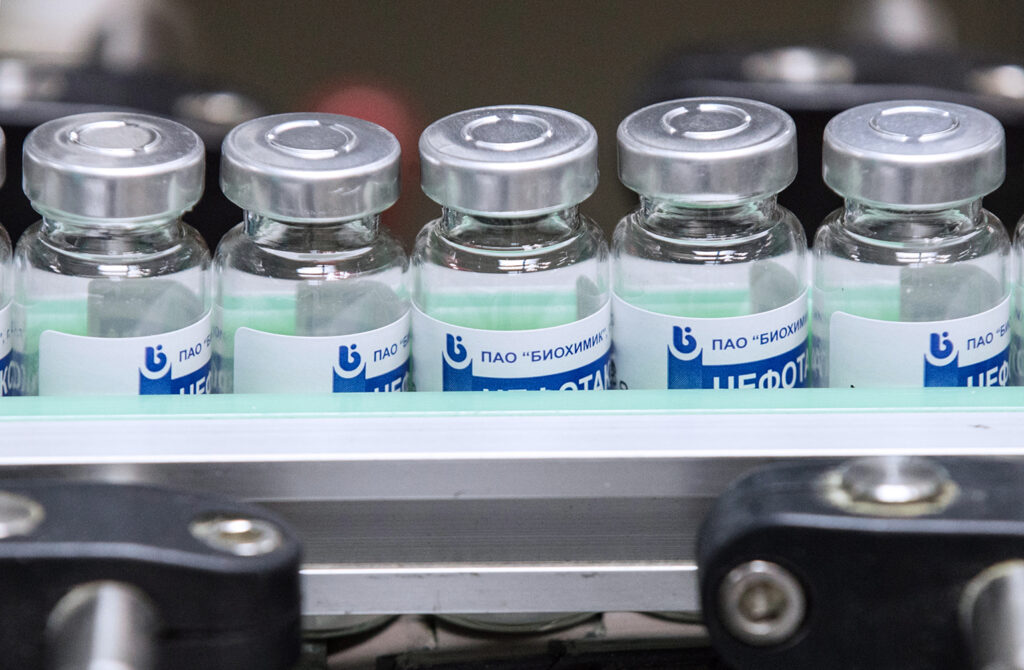Europe’s “champion” in the consumption of antibiotics is Greece, which faces a major problem of microbial resistance and, by extension, the spread of nosocomial infections.
Despite efforts to reduce the unnecessary prescription and consumption of antibiotics through campaigns for their correct use, antimicrobial resistance (AMR) remains a significant threat.
The latest data from the OECD, as described in the annual report “Health at a Glance 2023“, show that our country is first in antibiotic prescriptions.
More detail, with the data referring to 2021 and among selected countries, the prescribed daily doses per 1,000 people are 21.7% in Greece. The OECD average is 13.1%, while Greece is followed by France (19.3%) and Italy (15.9%). “Bright” are the examples of Austria (7.2%) and Germany (8.1%).
The OECD notes that antibiotic prescriptions have fallen in 90% of Organization for Economic Co-operation and Development countries. Still, antimicrobial resistance remains a major concern, and its costs are predicted to rise significantly over the next three decades.
November 18th is European Antibiotic Awareness Day, with European health authorities trying to get the right messages across to citizens every year. A very characteristic of these is that most sore throats do not require taking antibiotics since viruses mainly cause them.
Antibiotics are not indicated to fight viral infections. Another strong message is the need for a prescription to take antibiotics. Health authorities emphasise that we should not consume antibiotics that we have at home, thinking that we will feel better when we are sick.
35,000 deaths in Europe
It is estimated that more than 35,000 people die each year in the countries of the European Union/European Economic Area as a direct consequence of infection due to antibiotic-resistant bacteria.
According to the European Commission, the impact of antimicrobial resistance on health is comparable to the combined effects of influenza, tuberculosis and HIV/AIDS. In fact, in July 2022, the Commission and the Member States identified antimicrobial resistance (AMR) as one of the three biggest priority threats to health.
Antimicrobial resistance has severe consequences for human health and serious economic consequences for healthcare systems.
As it reduces the ability to prevent and treat infectious diseases, it threatens, among other things, the ability to perform surgery, the treatment of immunocompromised patients, organ transplantation and anti-cancer therapy.
It also poses a threat to food safety and food security, as it has an impact on animal health and production systems.
Nosocomial infections in Greece
Approximately 70% of incident infections from antibiotic-resistant bacteria were healthcare-associated infections. Additionally, the health impact of fungicide-resistant fungi has become more apparent over the years.
A recent EODY survey provides data on nosocomial infections in Greece in two periods (April to August 2022 and October to December 2022).
According to this, 12.1% of hospitalised patients had at least one infection on the registration day. Each patient with an infection had an average of 1.2 infections.
Of the total of 1,408 infections recorded in the sample and study period, 69.6% occurred 48 hours after admission to the hospital, while in 28.6% of the infections, the patient presented the infection at the time of admission to the hospital.
Infections already manifested on admission had a possible origin in the same hospital (re-admission of the patient) in 7.5% of cases, another hospital in 8.9%, Chronic Patients Units in 2.9%, and unspecified origin in 9.2%. For 1.8% of the infections, the origin could not be determined.
Especially about the fungus Candida Auris, an emerging pathogen that EODY began to record in 2019, is responsible for 122 deaths (November 2019 – December 2022), 40 (34.8%) related to invasive infection.
During the same period, 429 cases of Candida Auris have been recorded from 45 public and private hospitals in the country, of which 27 (60%) are within the prefecture of Attica.
Of the total number of incidents, 115 (26.8%) were related to invasive infections, while 314 (73.2%) were to patient colonisation.
However, the Organization for Quality Assurance in Health (ODIPY) recently recorded the first trend of decreasing infections, which concerns indicators related to the central catheter (CLABSI Rates).
Also, results of the GRIPP-SNF Program show a significant increase in healthcare professionals’ compliance with hand hygiene by more than 50%.\
Source: Greek City Times


